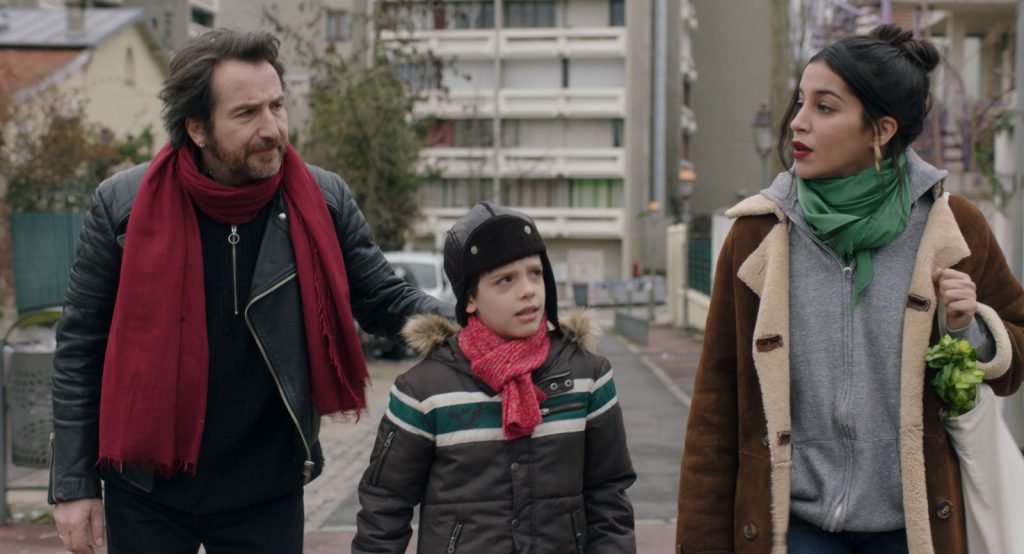Michel Leclerc’s newest comedy drama La Lutte des Classes amusingly explains uphill classism and liberalism, supplying everyone with a good moral compass.
Would you ever have thought debating Marxist class struggles and entertaining a wide audience could be done at the same time? Yes, me neither. But, with his latest comedy, Michel Leclerc (2011 César winner for The Names of Love) masterfully invalidates this prejudice and makes these two seemingly distant dimensions coalesce into an explosive movie. In the typical French tradition of satire, La Lutte des Classes trivializes all the clichés on public and private school, and the bobos – bohemian bourgeois in French – to make these subject matters more accessible and debatable.
La Lutte des Classes revolves around a bobo couple who just moved to the peripheral banlieues of Paris with the purpose of raising their children with a democratic education in the diverse and multicultural place of contamination that is a public school. The father, Paul (Édouard Baer), is a full-fledged anarchist and plays drums in a 90’s peaking punk band whose lyrics span from criticism to the bourgeoisie to capitalism. On the other side, mother, Sophie (Leïla Bekhti), is a career lawyer coming from a working-class family of African descent.
Both Paul and Sophie firmly adhere to their radical and leftist principles, so much so that they built their lives and careers upon those. To them, it’s fundamental for their son Coco (Tom Lévy) to attend public school. However, after an accident at school, the boy’s classmate friends get transferred by their parents to a private school, leaving Coco to be bullied and ostracized because he’s the only white child in the class. As Leclerc cleverly points out, the main discrepancy doesn’t only shallowly lie in skin color or in culture, but in social status. Paul and Sophie come to realize that the liberal dream they were pursuing for their family doesn’t coincide with the reality that they find themselves in: it’s a reality where people have diverse backgrounds and are actually financially struggling. It’s the ultimate realization of the contradiction that lives within the radical bourgeoisie, that realizes that the life that it is conducting is a mere whim, made possible by the possibility of having a whim: privilege.

What turns social desperation into a hilarious farce in this movie is that the audience’s gaze is tied to that of a child who has never read Marx and who just repeats nonsensically what he hears from his parents, from atheist to alt-leftist thoughts. That’s the reason why debates are held with such urgent words and the symbolism of scenes is so immediate, but never corny. Cultural stereotypes are portrayed in funny contexts (for instance, in one scene Coco dives into an aquarium because his religious classmates told him that baptism was the only way he could avoid going to hell) but every scene is deconstructed and accompanied by a proper explanation and demystification.
Reminiscent of other French films that caress social engagement through a sound laugh (2008 Welcome to The Sticks, 2011 The Untouchables, to name the most prominent ones), La Lutte des Classes makes use of stereotypical French beliefs on class and education only to savvy deconstruct them from the core. Director Leclerc co-wrote the script alongside Baya Kasmi, his partner in life and also actress in this movie. He says that they are two bobos writing about bobos – in fact, even the film’s cinematography is incredibly indie: a peculiar focus is laid on dialogue, shots are large and encapsulate the characters perfectly in the background, and colors tend to resemble a pastel palette.
Above all, what they say makes their modus operandi unique is that they were able to encompass many different social perspectives on the main issue through the lens of the relationship. In fact, many relationships are portrayed on screen and each one sketchily kind of stands for a different class. Consequently, different couples confront themselves on themes such as raising children, living in the suburbs, and politics. What comes out of this clash is surely an interesting reflection. However, the risks of such an intersectional comedy is that it could easily lapse into a facile moral conclusion and just flatten out complex subject matters. And, in a sense, it’s what happens in the end. It’s all approximated to little funny moral teachings, but that’s because it’s intrinsically not a film worth investigating big-picture wise, only to be bisected scene per scene. After all, La Lutte des Classes is a tale, and a pretty comic one, for everyone. Even for children, so every scene must provide with an immediate intellectual reward. If you ever need to explain classism, neoliberalism and privatizations to your children, before putting The Capital on their bedtables, play this film first.
La Lutte des Classes premiered in France and Belgium on April 3, 2019. It is about to be released in Italy by Satine Film, as Una Classe Per I Ribelli, in cinemas on October 22, 2020.

